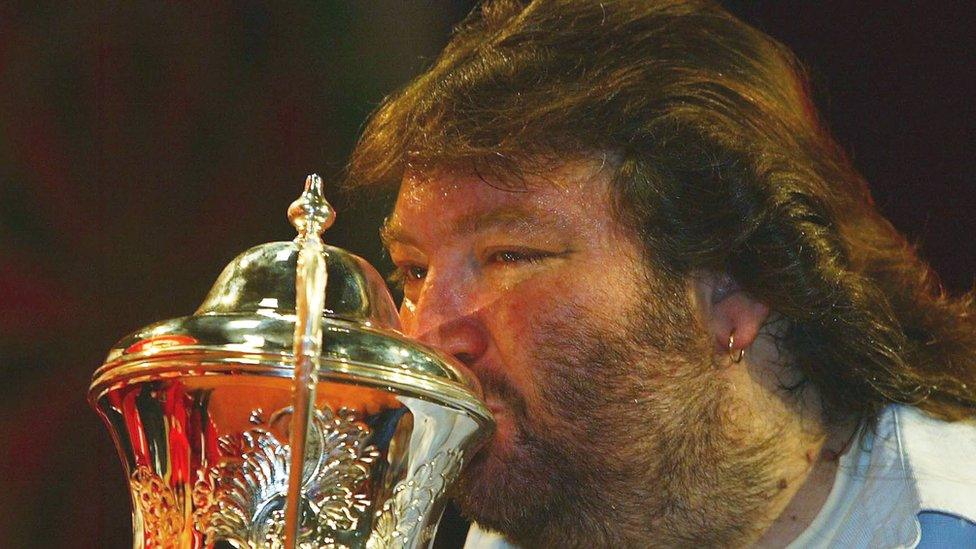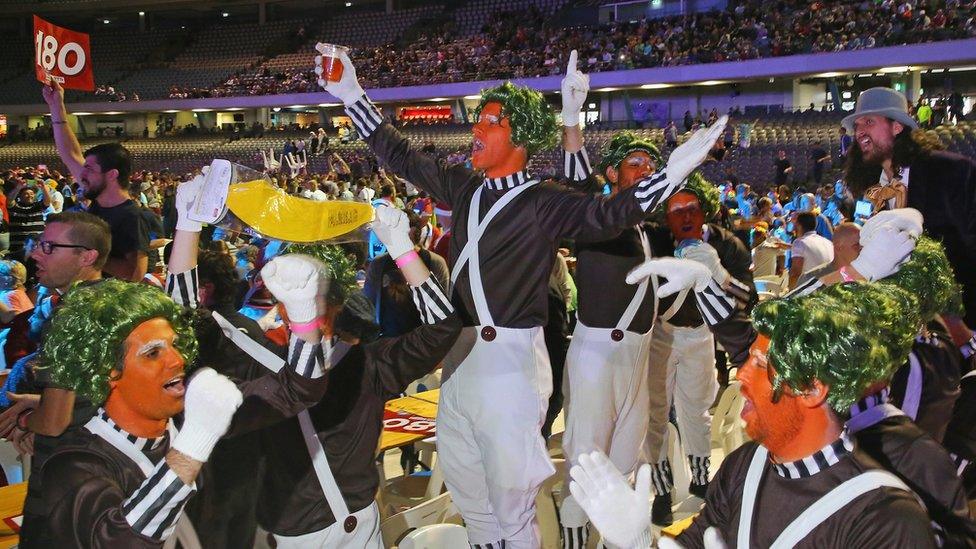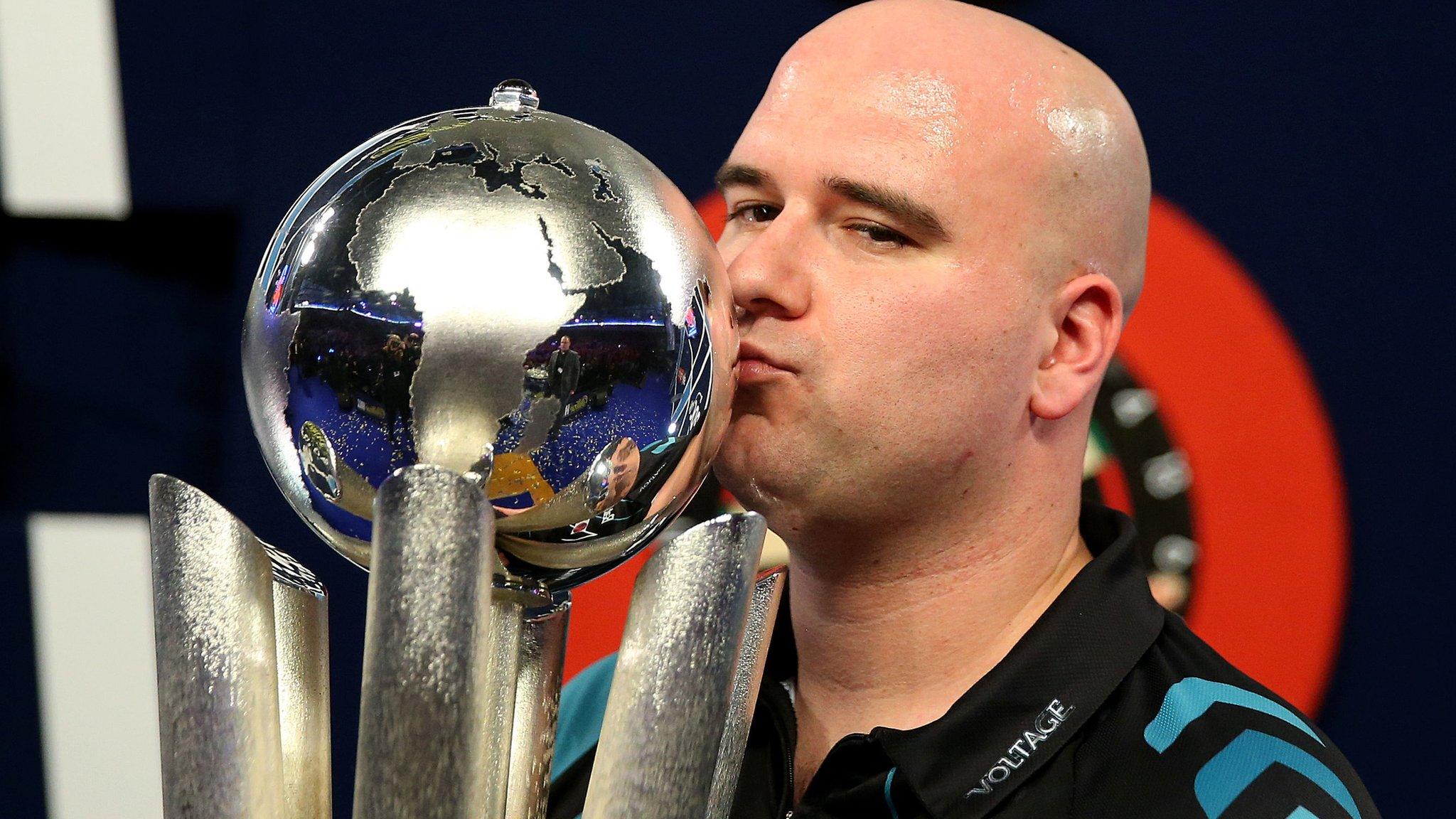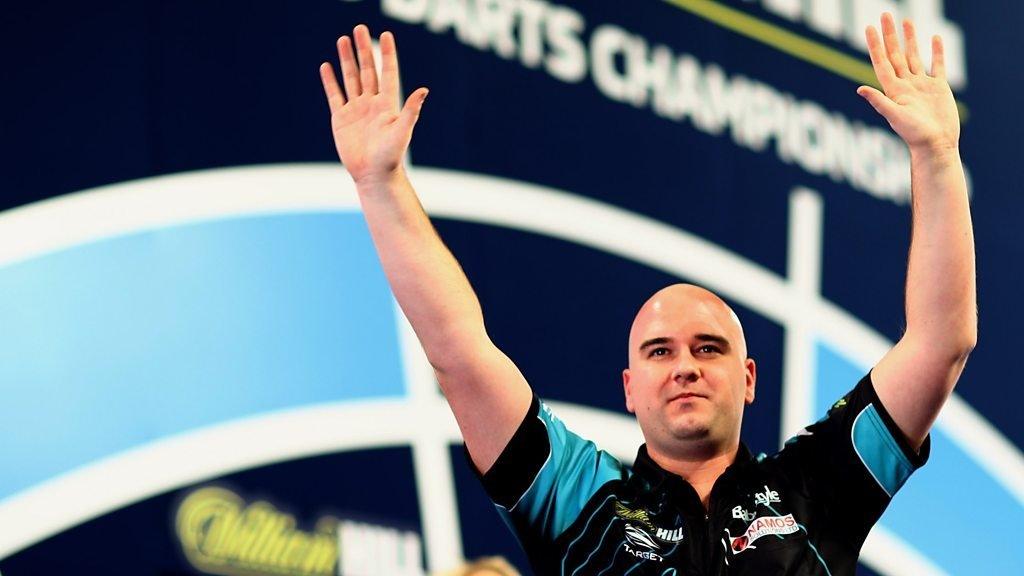Drinking and darts: Does alcohol improve performance?
- Published

Andy Fordham now sticks to non-alcoholic beer
These days, darts is a professional, sober affair, at least for the players. But some of the champions of the past were famous for their boozing. Can alcohol ever enhance people's ability to play darts?
The answer depends on how nervous you are, and whether or not you're addicted to alcohol.
Many studies have shown that even low levels of alcohol can impair motor skills and spatial reasoning.
But the effects of nervousness and alcohol withdrawal can be far worse, especially in a game like darts.
"For some people, low levels of alcohol improve performance of tasks. It does reduce anxiety and nervousness so if you're impaired by nervousness it can improve performance," Prof Robert Adron Harris, from the University of Texas at Austin, told the BBC.
A degree of stress actually enhances performance, but after a certain point, nerves get the better of people. This is known as the Yerkes-Dodson law.
In pub games, the stakes may be lower, but even amateurs find that the oche holds a strange power over them.
"Nervousness runs right through the sport, as does the belief that alcohol solves the problem," says Paul Gillings, who runs The Darts Performance Centre, a training centre and advice website. "Players totally believe that they can't play unless they have a drink. It ranges from one drink to 10."
He discourages this sort of self-medication, advocating relaxation exercises and positive thinking. He also reminds players that in the grand scheme of things, it's only a game of darts.

These days only the audience can drink in public at professional tournaments
John Thomas - or "Jocky" - Wilson, one of the top players of the 1980s, took it to extremes. He said he needed seven or eight vodkas to steady his nerves before playing.
He once fell off the stage at the end of a match.
Trebles all round
Before winning the 2004 BDO World Darts Championship, Andy Fordham reportedly drank 24 bottles of beer along with quite a bit of brandy.
He said in an interview later that people never saw him sober. He weighed 31 stone and developed cirrhosis of the liver.
Fordham, who was also known as The Viking, believed that heavy drinking was the only way he could concentrate - and he was probably right.
For someone who is used to drinking as much as he was, it would be very difficult to play sober.
"The more you drink, the more tolerance to alcohol increases," says Anya Topiwala, a senior clinical researcher at the University of Oxford. "Alcohol withdrawal causes anxiety, tremors and sweatiness, all of which I suspect would make it harder to play darts."
But experts agree that players like Fordham and Wilson won matches in spite of their drinking habits, not because of them.
"There's too much money involved now for players to get themselves too pie-eyed," says David King, who runs Darts501, a darts information website.
He says the sport needs more trainers and psychologists to help people get over stage fright, shaky hands and even a nasty psychological condition known as dartitis, where players find themselves unable to throw a dart.
So alcohol doesn't make most people better at darts, but while the pub remains the best place to practise, aspiring players may need to resist round-the-clock sessions, especially if they're of a nervous disposition.


- Published17 January 2020

- Attribution
- Published1 January 2018

- Attribution
- Published2 January 2018
